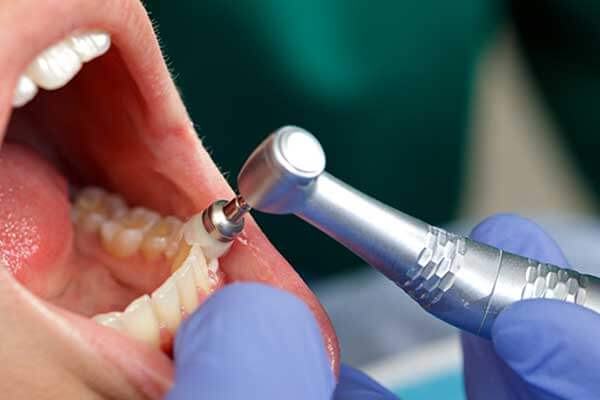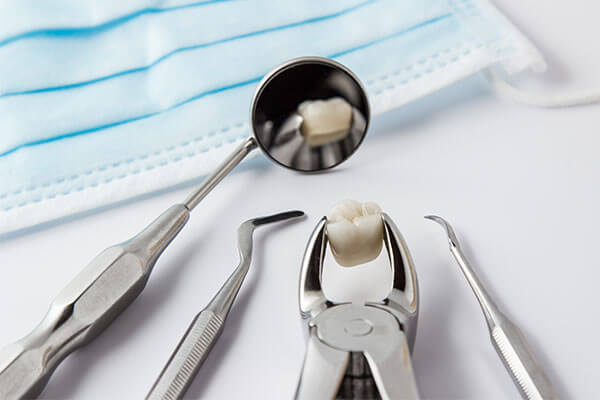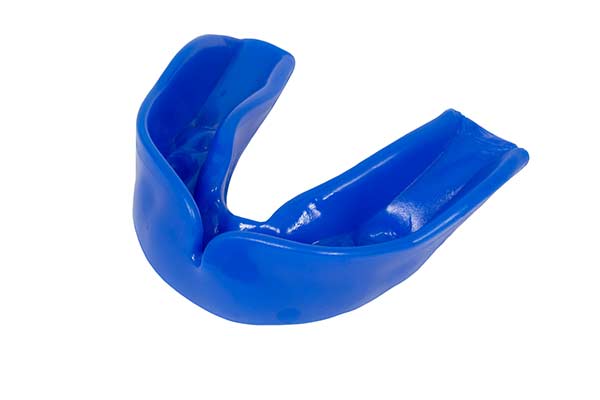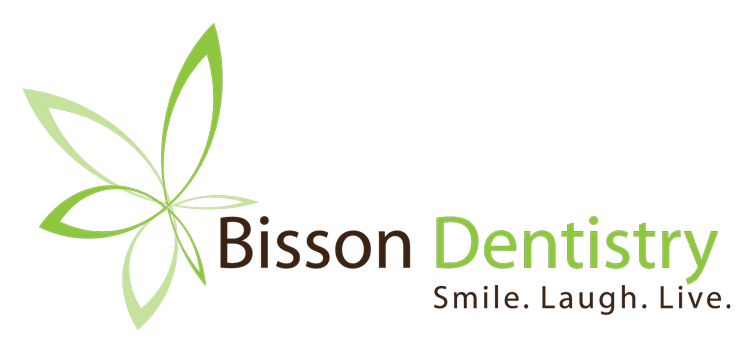General Dentistry in Guelph, Ontario

Bisson Dentistry provides general dentistry in Guelph, Ontario. Call 519-821-3561 to learn more and schedule an appointment.
Comprehensive Evaluation / Oral Examination
An oral examination is a visual inspection of the mouth, head, and neck, performed to detect abnormalities. Radiographs allow for a more complete examination, helping the doctor to detect cavities, problems in existing dental restorations, gum and bone recession or other abnormal conditions within the mouth, head and neck area.
Dental Cleaning

A dental cleaning, also known as an oral prophylaxis, is the removal of dental plaque and tartar (calculus) from the teeth. Specialized instruments are used to gently remove these deposits without harming the teeth. First, an ultrasonic device that emits vibrations and is cooled by water is used to loosen larger pieces of tartar. Next, hand tools are used to manually remove smaller deposits and smooth the tooth surfaces. Once all the tooth surfaces have been cleaned of tartar and plaque, the teeth are polished.
Fluoride Treatments
While commonly associated with children, cavities are one of the most common dental issues experienced by individuals of all ages. Approximately 91% of patients have experienced at least one cavity in a permanent tooth. Even though cavities are common, they are also preventable. However, some individuals are more at risk than others. Bisson Dentistry can help to prevent cavities with fluoride treatments.
Fluoride treatments are simple, quick, and completely painless. Following a thorough cleaning of your teeth, a fluoride gel is painted onto the surfaces of your teeth. The fluoride in the gel then absorbs into the enamel of your teeth, where it goes to work strengthening your teeth and enabling them to more effectively fend your teeth from acid erosion. The gel does not need to be removed or rinsed off. It is recommended that you do not eat or drink for at least 30 minutes following the application of your fluoride treatment, however, to ensure optimal benefits.
Fluoride treatments provide you with an additional layer of protection against decay and cavities, helping to keep your teeth strong and healthy.
Dental Sealants
The chewing surfaces of your molars present unique issues when it comes to maintaining your oral health. Not only can the deep crevices more easily trap bacteria and food, but they are also more difficult to completely clean out, even if you brush properly every day. The bristles of your toothbrush may not be able to effectively clean out these crevices.
Sealants are a preventative treatment designed to help protect the chewing surfaces of your molars from decay and cavities. They are a synthetic application made up of plastic. The material is applied to the chewing surfaces of your molars, effectively covering over the deep crevices in your molars. As a result, bacteria and food particles cannot get trapped. Eliminating the crevices also helps to make your molars easier to maintain.
Sealants are a treatment commonly associated with children. This is because children are typically more prone to cavities than others. However, cavities can affect anyone, regardless of age. If cavities are an issue that affect you, you may benefit from the additional protection of dental sealants.
Root Canal Treatment
Root canals are most often necessary when decay has reached the nerve of the tooth or the tooth has become infected. When root canal therapy is performed, infected or inflamed pulp is removed from the tooth chamber. The inside of the tooth is then cleaned and disinfected before being filled and sealed to limit the possibility of future infection. Soon after the root canal is performed, the tooth is restored with a dental crown or filling to protect the tooth and restore normal tooth function.
Extractions

A tooth that can not be saved with restorative procedures may need to be removed. Before removal of the tooth, the area will be numbed with anesthesia. The tooth is loosened from the jawbone and surrounding ligaments and tissues with a gentle rocking motion. Once it is loose, it is gently removed. Stitches may be necessary after the removal of a tooth.
Custom Mouth Guards

Many sports require athletes to use a mouth guard to protect their teeth while practicing and playing. Frequently used in contact sports, the mouth guard covers the gums and teeth to provide protection for lips, gums, teeth, and arches. A properly fitted mouth guard can reduce the severity of dental injuries.
